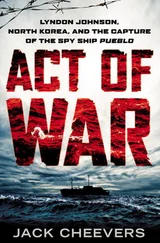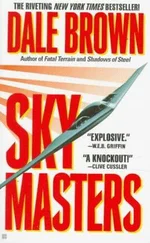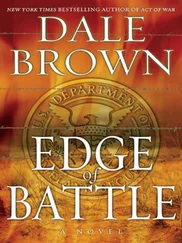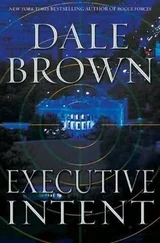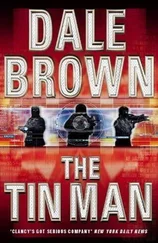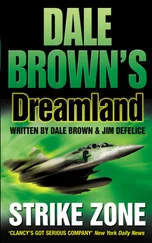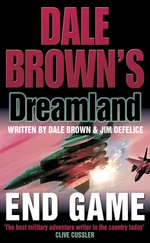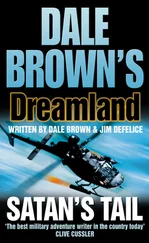He found out later that morning that his wife and children never made it out, but were overcome by the smoke and perished in the blaze.
Several days later, the security office of the dam’s construction company, a subcontractor of TransGlobal Energy Corporation, was dynamited, killing a dozen men inside. The letters “GAMMA” were written in blood-red paint six meters tall on the partially completed dam face itself. An announcement sent to media outlets all over the world via the Internet stated that the acronym stood for Guerra Alliance de la Movimento Meio Ambiente, or the Environmental Movement Combat Alliance, declaring war on multinational corporations that polluted the environment and exploited the working people of the world.
Jorge Ruiz was of course the main suspect in the blast. Many saw him as a modern-day Zorro—one man battling the forces of evil around him, no matter how big or powerful. Even in an age of worldwide concern about terrorists claiming to be freedom fighters or patriots, many all over the world cheered him on, supporting him at least with their hearts and words if not their hands or wallets. But Ruiz was nowhere to be found; he was believed to be deep in hiding or perhaps executed by TransGlobal Energy’s rumored death squads.
Instead, here he was, several months later, crawling on his belly in the mud about a kilometer from Repressa Kingman. He and Manuel had been out there for a week and a half, studying the security setup and inching their way—literally—toward various parts of the dam, then inching their way back out. They had been hounded almost every day by ground and air patrols, which got steadily heavier and more persistent every day. But their timing had been perfect, and they managed to avoid giving in to panic as they covertly made their way back to their observation post.
Their mission was successful despite the dramatically added security because of two factors. First and foremost was Manuel Pereira’s skill in the field. He was a former Brazilian army infantryman—every able-bodied man in Brazil had to go through army basic training at age eighteen or after graduating from high school, then had to join a local state military police reserve unit until age forty; Pereira chose to spend three years in the regular army in an American-trained Special Forces infantry unit before joining the reserves. He knew how to move silently, knew how to search for sentries and signs of pursuit. Pereira showed the same joy of teaching Ruiz about moving, hiding, and reconnaissance as Jorge did of professing his love of the environment.
The second reason for their success was heading in their direction at that moment; Manuel spotted them several hundred meters away: three members of the Policia Militar do Estado of the state of Paraná, the PME, armed with submachine guns and pistols, driving an old American open-top Jeep that sputtered and coughed down the dirt construction road.
As it was in the days of military rule, the central government was concerned more with antigovernment insurgents and Communist infiltrators rather than with external threats. In Brazil there were few municipal police departments: law-enforcement duties were handled by the PME, which were locally directed by state public safety officials but organized, trained, and administered by the Brazilian armed forces. Here in Cascavel, as in most of the country, the local gendarmes were very well armed and trained. Like police officers around the world, many officers in the PME moonlighted as security guards for private companies and even individuals—and the biggest private employer of PME officers in the state was TransGlobal Energy. So it was with these men.
But Brazil is a very big country—the fifth-largest in the world in land area—and without strong supervision from state or federal offices, the PME became virtually autonomous, especially in the frontier and jungle regions, answerable to no one except local bosses, wealthy landowners, or military commanders. Many PME officers had been charged with human rights abuses, and steps had been taken over the years to try to more closely supervise the force and punish the offenders, but in the end the old ways worked the best: patronage, fear, guns, retribution, and payola.
Although these men took money from the Brazilian government to maintain order in Paraná and from TransGlobal to provide private security for the construction site, they also took money from a third source: GAMMA. They and a number of others had been recruited by Ruiz’s second in command, an ex–oil executive from Russia turned activist by the name of Yegor Viktorvich Zakharov, to simply look the other way when requested.
The PME soldiers stopped their Jeep just a few meters from where Ruiz and Pereira were hiding, at a bend in the construction road that would partially hide them from the guard towers back at the construction site. They were making an awful lot of noise. They searched the area carefully, looking right at the two men hiding in the bushes several times, then returned to the Jeep. Ruiz was then surprised when one of them pulled out a bottle of cachaça—liquor similar to rum, fermented from sugarcane juice—and took a sip. Pereira pulled a suppressed .45 caliber IMBEL-GC Pistol-45 from a shoulder holster and aimed it at the men; Ruiz pulled his pistol, a suppressed .380 caliber IMBEL-GC Pistol-380, but did not aim it. He was not yet comfortable with aiming a gun at another human being, although every day in the jungle was slowly but surely changing his mindset.
“Don’t turn around,” Pereira said.
The man drinking from the bottle took a shallow swig, passed the bottle, then started taking off his web belt and undoing his fatigue trousers, getting ready to take a piss. “You two fucks are about two minutes away from getting your asses caught,” he said. “They brought in more security in armored vehicles. The first patrol is on its way out.”
“We’ve seen them—they’re deploying them over at Unit One, not out here,” Pereira said. “Why in hell are you out here drinking, puta?”
“Because this is outside our normal patrol route—we’ll need a reason why we’re out so far from the construction site. If they spot us from the towers, they’ll see us drinking, and TransGlobal will probably fire us. I wouldn’t want to be around when you two get caught anyway.”
“You already have your money and your escape plan,” Ruiz said. “All we need to know is if our packages are secure.”
“No one has touched your packages,” one of the soldiers said. “That is our normal patrol route and our responsibility. Don’t worry.”
“Then why the hell don’t you just get out?”
“Because I want to see it with my own eyes when you set it off.”
“What in hell are you talking about?” Ruiz asked. “Are you crazy, or just drunk?”
The soldiers looked confused. “It’s not every day you see a nuke go off,” one of the other soldiers remarked.
“Do you wear just sunglasses, or do you wear special goggles?” another asked. “Are we far enough away here? It looks awful close.”
Ruiz and Pereira looked at each other in total shock. “What are you talking about?” Pereira exclaimed finally.
“You guys don’t know?” the first soldier asked incredulously. “Shit no, you don’t, because you’ve been crawling around out here in the mud for the past week. All hell has broken loose in America, and you guys are responsible for it. You’ve just been declared the number-one terrorist organization in the whole fucking world, way ahead of al Qaeda, Islamic Jihad…”
Ruiz looked at Pereira, his mouth open in surprise. “What happ…?”
But at that moment, they heard the soldier’s radio crackle. The man listened, then responded. “They’re starting to seal up the entire complex, boys, including the dam. I think your stash of explosives down by the garbage pit was found.”
Читать дальше


